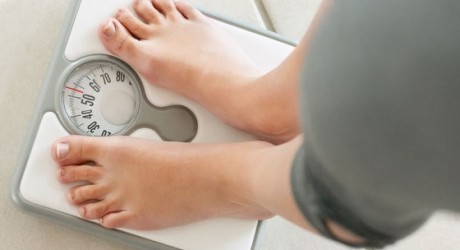Well reports say that. Recently a survey found that 46% of The Mumbai University’s students are obese and over weighted. As students we always forget to take care of our health. That doesn’t means we do not sleep and eat all the time – the question is what do we eat? It’s important to eat the right food. We all know this but the good food never comes. It’s always the tomorrow thing for us. Which never comes. The results are shocking as well. Many over weighted and obese students do not realize the need to cut down there weight right now. The future problems are something they are unaware of.
56% of students do not even see obesity as a disease. Experts says that it’s the prime responsibility of the colleges to promote health issues in colleges, where students need to take care of their health. While a few colleges have come forward and exercised charts and diet plans to students along with counselors on campus. In July 2012 it was decided that colleges will have a dedicated sports and youth policy. They also released a curricular imposing regular appointment of sports teacher and check on body mass index (BMI) levels. However most colleges have no followed this.
No doubt college is the best place to imbibe health issues for students as they spend their important and most time there after school and home. If the younger generation doesn’t start mending their lifestyle, sedentary habits and diets, they will face serious complications later which is a fact. We do not know that heart diseases and several other problems such as diabetes can be predicted in our future if we do not take care of our health now. Think of a heart of an overweight person as a horse who is made to carry extra load. It is bound to face early fatigue or failure.
Also our society associates a social stigma to the obese. Obese students always lack confidence and have a very low self-esteem. They face bullying and are a target to jokes and harassment. They are further discouraged to treat the problem as a disease. Encouraging sports, facilitating sports and making it a part of the curriculum is what teacher’s advice.
We do not include exercise, yoga and good food in our diets the sedentary life kills our active cells. The colleges can do a bit here by introducing sports facilities to all and promote games and outdoor activities. Counselling helps a lot on the campus too. Some colleges have their health counselling sessions on campus which is available to all. But many also say that this is the student choice to choose what to do when all the facilities are made available. Also the canteen food should be made more healthy and at reasonable prices. The students can go out and heap on junk food but the college should do its role.
As students we should understand the importance of our health. There’s no achievement in eating junk food every day. You only degrade your immunity as well as your health quality. Junk foods, processed and packaged foods attract the young people a lot which is why the results are 46% obese and over- weight students. We are big now, it’s our choice to take care of our health and eat the right food. Having Junk food sometimes might be okay but not every day. Also skipping breakfasts and eating food after long hours of casual fast is just too bad for the health. Fatigue, anxiety, stress, is what is to be seen. Due to overweight or obesity, the insulin level in the body increases and in the long run, students may suffer from high blood pressure, diabetes, high cholesterol and other problems. We should understand that before we enter the competitive rat race it’s important to hold the healthy lifestyle because then it will be too late. College should introduce health counselors, sports hours, and diet charts in the curriculums. Students should have health goals similar to the way they have career goals.
THE IDEAL DIET PLAN:
BREAKFAST – a bowl of corn flakes or muesli with one fruit or dry fruits. For non-vegetarians, egg whites are a good breakfast option.
LUNCH: one bowl of curd or one bowl of salad. Along with that, with sprouts, vegetables, or roti.
Non-vegetarians can eat fish or one filet of chicken.
EVENING SNACK: roasted chana, sprouts bhel or oats chivda.
DINNER: one bowl of curd, along with that, eat dal, sabzi or roti.
It is very important to have regular intake of fluids and fruit throughout the day.
CUT DOWN ON: sugary foods, packaged foods, fried food, Maida products and too much bread.
ADD TO YOUR DIET: fruit, curd, leafy vegetables and sprouts. Regular intake of water.
TAKE CARE!
Find more health charts and diet plans here: –
http://www.bms.co.in/the-complete-health-guide-diet-to-cleanse-your-body/
SANGITA MAITY.





very nyc article